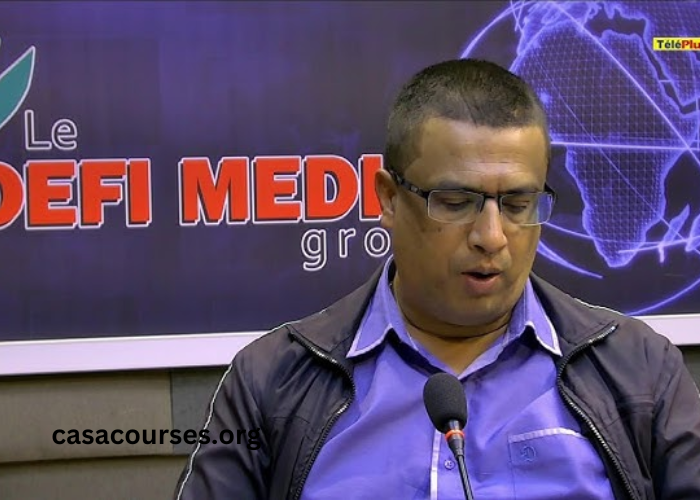Turf betting has always captivated enthusiasts with its blend of strategy, skill, and excitement. Among the various approaches, “Turf Logique” stands out for its methodical and logical strategy. This article explores Turf Logique in detail, offering valuable insights for both newcomers and seasoned bettors. With 15 subheadings, this guide covers every aspect of this logical betting strategy.
Introduction to Turf Betting
Turf betting, the practice of wagering on horse races, is a popular pastime that combines excitement with the potential for substantial rewards. Bettors place wagers on various outcomes, from straightforward win/place/show bets to more complex combinations. The allure of turf betting lies in its strategic depth and the thrill of watching races unfold, making it a favorite among racing fans worldwide.
Understanding Turf Logique
Turf Logique is a betting strategy that emphasizes a logical and analytical approach to wagering. Unlike methods that rely heavily on intuition or luck, Turf Logique involves thorough research, statistical analysis, and careful consideration of multiple factors to make informed bets. The strategy aims to identify value bets and optimize the chances of success through reasoned decision-making.
Origins of Turf Logique
The Turf Logique strategy has its roots in a more scientific approach to betting, where logic and data analysis play a crucial role. It emerged as bettors sought ways to minimize the influence of luck and maximize their chances of winning through systematic analysis. Understanding its origins helps appreciate the strategic depth and rationale behind this method.
Key Principles of Turf Logique
The core principle of Turf Logique is to make betting decisions based on logical analysis and empirical data. This involves examining various factors such as horse performance, jockey and trainer statistics, track conditions, and race distance. The strategy focuses on identifying value bets—opportunities where the potential reward outweighs the risk based on a logical assessment of probabilities.
Analyzing Past Performances
A fundamental aspect of Turf Logique is analyzing the past performances of horses. This involves reviewing race histories, focusing on finishes, times, and patterns that might indicate future success. Tools like past performance charts and racing databases are invaluable for gathering and interpreting this data, providing a solid foundation for logical betting decisions.
Evaluating Jockey and Trainer Influence
Jockeys and trainers significantly impact a horse’s performance. A skilled jockey can navigate a race’s challenges effectively, while an experienced trainer can optimize a horse’s conditioning and strategy. In the Turf Logique approach, evaluating the track records of jockeys and trainers is essential, as their expertise can influence race outcomes.
Assessing Track Conditions
Track conditions, including weather and surface type, can greatly affect race results. Bettors using Turf Logique must stay informed about track conditions on race day. Understanding how different horses perform under various conditions is crucial for making logical betting decisions, as certain horses may excel on specific surfaces or in particular weather.
Importance of Race Distance
Race distance is another critical factor in the Turf Logique strategy. Different horses excel at different distances; some are sprinters, while others perform better in longer races. Analyzing a horse’s past performances at various distances provides valuable insights into its chances of success, allowing for more informed and logical bets.
Identifying Value Bets
A key aspect of Turf Logique is identifying value bets—situations where the potential payout is higher than the actual risk based on logical assessment. This involves comparing the odds offered by bookmakers with the bettor’s evaluation of a horse’s chances. Successful value betting can significantly enhance returns and is a cornerstone of the Turf Logique strategy.
Risk Management in Turf Logique
Effective risk management is crucial for long-term success in turf betting. This includes setting a budget, diversifying wagers across different races, and avoiding the temptation to chase losses. A disciplined approach to risk management helps mitigate financial risks and ensures a sustainable and enjoyable betting experience.
Common Mistakes to Avoid
Even experienced bettors can make mistakes when using Turf Logique. Common pitfalls include overemphasizing recent performances, neglecting important factors like track conditions, and failing to conduct thorough research. Being aware of these mistakes and actively working to avoid them can improve your betting strategy and increase your chances of success.
Success Stories with Turf Logique
Numerous bettors have achieved significant payouts using the Turf Logique strategy. These success stories often involve a combination of diligent research, strategic betting, and a logical approach. Analyzing these successes can provide practical insights and inspiration, showcasing the potential rewards of logical and systematic betting.
Tools and Resources for Turf Logique
Various tools and resources can assist bettors in implementing the Turf Logique strategy effectively. These include online racing databases, performance charts, expert analyses, and betting forums. Utilizing these resources can enhance your ability to make informed decisions, improving your chances of selecting successful bets.
Comparing Turf Logique with Other Strategies
Turf Logique is one of many strategies in turf betting. Comparing it with other approaches, such as intuition-based betting or different combination bets, can provide a broader perspective on its advantages and potential drawbacks. Understanding these comparisons helps bettors choose the strategy that best fits their preferences and goals.
Adapting Turf Logique to Different Racing Environments
Horse racing varies significantly across different countries and tracks. Adapting the Turf Logique strategy to these diverse environments involves understanding local racing customs, track conditions, and competition levels. Flexibility and a willingness to adjust your approach are key to maintaining effectiveness in various contexts.
Conclusion
Turf Logique offers a balanced and strategic approach to turf betting, combining logical analysis with the excitement of horse racing. By thoroughly understanding the strategy’s principles, conducting diligent research, and employing effective risk management, bettors can enhance their chances of success. While not without its challenges, Turf Logique remains a popular and potentially rewarding strategy in the dynamic world of turf betting.



